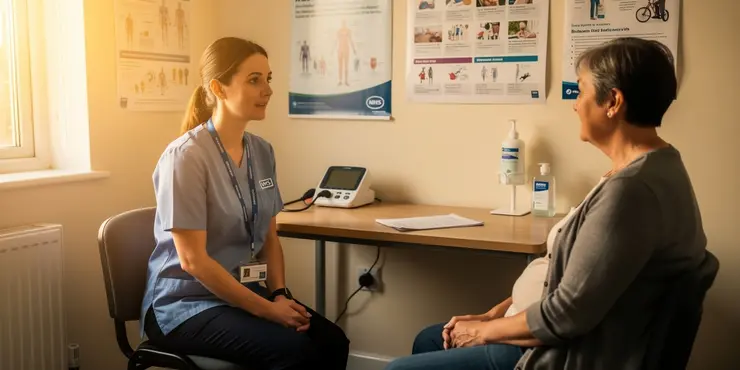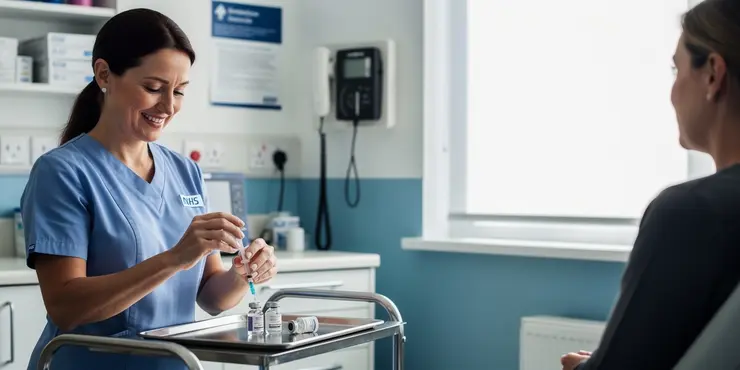
Find Help
More Items From Ergsy search
-

What is safe alcohol consumption in Adults?
Relevance: 100%
-

What role does alcohol consumption play in bowel cancer risk?
Relevance: 57%
-

Alcohol Awarerness Week
Relevance: 46%
-

FASD Foetal alcohol
Relevance: 45%
-
Can alcohol be consumed while taking Wegovy?
Relevance: 45%
-

Is it possible for alcohol alone to cause similar symptoms?
Relevance: 44%
-
What is alcohol poisoning?
Relevance: 44%
-

5 Facts about Alcohol and Britain
Relevance: 42%
-

Should I avoid alcohol during a heatwave?
Relevance: 41%
-
Why is binge drinking common among young adults?
Relevance: 40%
-
How does alcohol tolerance relate to binge drinking?
Relevance: 40%
-

Can alcohol worsen sleep apnea?
Relevance: 38%
-
Why is methanol sometimes found in illegally produced alcohol?
Relevance: 36%
-

Living with Foetal Alcohol Spectrum Disorder (FASD), a mum’s journey (full version)
Relevance: 34%
-
Are high caffeine drinks safe?
Relevance: 32%
-

How does regular caffeine consumption impact tolerance and blood pressure?
Relevance: 31%
-

What is Alcohol Rehab?
Relevance: 30%
-

Does coffee consumption have any long-term heart health effects?
Relevance: 28%
-

Is it safe to take Paracetamol with Ibuprofen?
Relevance: 27%
-

Can the measles vaccine be given to adults?
Relevance: 27%
-

How does a high-sugar diet affect gut health in older adults?
Relevance: 27%
-

Can adults get measles?
Relevance: 27%
-

How do cognitive changes in older adults influence driving risk?
Relevance: 27%
-
How do I reduce unhealthy fat consumption?
Relevance: 27%
-

Can adults receive the MMR vaccine?
Relevance: 26%
-

Are caffeine pouches safe?
Relevance: 26%
-

Is it safe to take blood pressure medication with coffee?
Relevance: 26%
-

Can children take the same cold medications as adults?
Relevance: 26%
-

Can adults have autism?
Relevance: 26%
-
What is the recommended daily sugar intake for adults?
Relevance: 26%
-

Can adults have ADHD?
Relevance: 26%
-
Is tinnitus more common in older adults?
Relevance: 26%
-

Are there any laws against binge drinking?
Relevance: 26%
-

Is Botox safe?
Relevance: 26%
-

Is the shingles vaccine safe?
Relevance: 26%
-

Can adults get impetigo?
Relevance: 26%
-

Can adults get chickenpox?
Relevance: 25%
-

Are probiotics beneficial for gut health in older adults?
Relevance: 25%
-

Are adults in the UK at risk from measles?
Relevance: 25%
-

How much caffeine is generally considered safe for people with high blood pressure?
Relevance: 25%
Understanding Safe Alcohol Consumption in Adults
What is Considered Safe Alcohol Consumption?
Safe alcohol consumption refers to the moderate intake of alcoholic beverages in a way that minimizes the risk of harm to an individual's health and wellbeing. In the United Kingdom, government health guidelines suggest that both men and women should not regularly consume more than 14 units of alcohol per week. These units should ideally be spread evenly over three or more days to prevent harmful drinking patterns.
The Definition of an Alcohol Unit
An alcohol unit is a measure used to quantify the pure alcohol content in a drink. In the UK, one unit is equivalent to 10 milliliters (or 8 grams) of pure alcohol. Depending on the type and strength of the alcoholic beverage, the number of units can vary. For example, a typical pint of beer with an alcohol by volume (ABV) of 4% contains about 2.3 units, whereas a standard (175 ml) glass of wine with 12% ABV has around 2.1 units.
The Risks of Exceeding Safe Limits
Exceeding the recommended alcohol limits can lead to a variety of health issues. Short-term risks include accidents and injuries due to impairment, while long-term risks involve chronic health conditions such as liver disease, certain cancers, and cardiovascular problems. Regularly drinking more than the recommended amounts also increases the risk of developing alcohol dependency.
Strategies for Maintaining Safe Consumption
To ensure safe alcohol consumption, individuals can take several measures. Keeping track of the number of units consumed, opting for lower-strength drinks, and having alcohol-free days each week are effective strategies. Additionally, individuals should avoid binge drinking, which is defined as consuming a large quantity of alcohol in a short period, usually leading to an elevated blood alcohol concentration.
Conclusion
Safe alcohol consumption is a crucial aspect of maintaining good health for adults in the UK. By adhering to the guidelines of no more than 14 units per week, spread over several days, individuals can enjoy alcohol in moderation while minimizing associated health risks. Understanding and implementing safe drinking practices are fundamental to responsible alcohol consumption.
Understanding Safe Alcohol Consumption for Adults
What is Safe Alcohol Consumption?
Safe alcohol consumption means drinking alcohol in a way that is not harmful. In the UK, it is advised that men and women should not drink more than 14 units of alcohol each week. It is best to spread these 14 units over three or more days. This helps to drink safely.
What is an Alcohol Unit?
An alcohol unit measures how much pure alcohol is in a drink. In the UK, one unit is 10 milliliters of pure alcohol. Different drinks have different units. For example, a pint of beer with 4% alcohol has about 2.3 units. A standard glass (175 ml) of wine with 12% alcohol has about 2.1 units.
The Risks of Drinking Too Much
Drinking more than the recommended amount can be harmful. In the short term, it can cause accidents and injuries. In the long term, it can lead to serious health problems like liver disease, cancer, and heart issues. Drinking too much regularly can also lead to alcohol addiction.
How to Drink Safely
There are ways to drink alcohol safely. You can keep track of how many units you drink. Choose drinks with lower alcohol levels. Have days each week where you do not drink at all. Avoid drinking a lot in a short time, known as binge drinking, as it can be very risky.
Conclusion
Drinking alcohol safely is important for staying healthy. In the UK, try not to drink more than 14 units of alcohol each week. Spread these units over a few days. By following these guidelines, you can enjoy alcohol without harming your health. Knowing how to drink safely is part of being responsible with alcohol.
Frequently Asked Questions
What is considered safe alcohol consumption for adults in the UK?
In the UK, the recommended guidelines suggest that adults should not regularly drink more than 14 units of alcohol per week.
What is a unit of alcohol?
A unit of alcohol is defined as 10 millilitres (8 grams) of pure alcohol. It is roughly the amount of alcohol the average adult body can process in an hour.
How can I calculate the units of alcohol in my drink?
To calculate the units in a drink, multiply the volume of the drink (in millilitres) by the ABV (alcohol by volume) percentage and then divide by 1,000.
How many units are there in a typical pint of beer?
A typical pint (568 ml) of beer with 4% ABV contains approximately 2.3 units of alcohol.
How many units are in a standard glass of wine?
A standard 175 ml glass of wine with 13% ABV contains about 2.3 units of alcohol.
What does the UK guideline mean by 'regularly'?
In the UK guidelines, 'regularly' means drinking most weeks of the year.
Is it safe to drink all 14 units in one day?
No, it is not recommended to consume all 14 units in one day, as spreading drinking evenly over three or more days is healthier and reduces risk.
Why should drinking be spread over 3 or more days?
Spreading alcohol consumption reduces the risk of binge drinking, lessens strain on the body, and helps prevent the accumulation of alcohol-related harm.
Are there specific groups of people who should avoid alcohol?
Yes, pregnant women, people on certain medications, and those with specific health conditions or a history of alcohol dependency should avoid alcohol.
What are some health risks associated with excessive alcohol consumption?
Excessive alcohol consumption can increase the risk of liver disease, heart disease, mental health issues, and certain types of cancer.
Can alcohol consumption affect mental health?
Yes, alcohol can negatively impact mental health, leading to increased risk of depression and anxiety.
Is it possible to drink alcohol and still maintain a healthy lifestyle?
Yes, by adhering to recommended guidelines, choosing lower-alcohol options, and drinking in moderation, you can integrate alcohol consumption into a healthy lifestyle.
Do the UK alcohol guidelines differ for men and women?
No, the UK guidelines are the same for both men and women, recommending no more than 14 units per week.
Can certain types of alcoholic beverages be considered healthier than others?
While no alcoholic beverage is truly 'healthy,' drinks with lower alcohol content and fewer added sugars or calories may be preferable.
Is it necessary to have alcohol-free days every week?
Yes, having several alcohol-free days each week is encouraged to help reduce dependency and improve overall health.
How much alcohol can adults safely drink in the UK?
In the UK, it is advised that grown-ups should not drink more than 14 units of alcohol each week.
What is a unit of alcohol?
A unit of alcohol is a way to measure how strong a drink is. It helps people see how much alcohol they are drinking.
One unit is a small amount of pure alcohol. Different drinks have different number of units. For example, a small glass of wine or half a pint of beer can each be about 1 unit.
To understand better, you can:
- Look at the label on a drink bottle. It tells you how many units are inside.
- Ask someone to help you work it out if it's confusing.
- Use an app or chart to learn more about alcohol units.
A unit of alcohol is a way to measure how much alcohol is inside a drink. One unit has 10 milliliters of pure alcohol. This is about the amount your body can handle in one hour. You can use tools like measuring cups or apps to help you count units of alcohol.
How can I find out how much alcohol is in my drink?
1. Look at the drink bottle or can to see how strong it is. This is called the alcohol by volume (ABV). It is a number with a % sign.
2. See how much drink you have. This is often in milliliters (ml).
3. Use this formula to find out the units:
Units = (ABV % number x drink amount in ml) ÷ 1000
You can use a calculator to help. Some websites and phone apps can do this for you too.
Remember, drinking less alcohol is healthier for you.
To find out how much alcohol is in a drink, do this:
1. Look at the size of the drink in millilitres (ml).
2. Find the ABV number on the bottle or can. ABV means "alcohol by volume." It shows how strong the drink is.
3. Multiply the drink size (ml) by the ABV number.
4. Divide that answer by 1,000.
Now you know how much alcohol is in the drink!
If maths is hard, you can use a calculator. It helps make counting easy!
How many drinks are in one pint of beer?
It can be hard to know how strong a drink is. Here are some tips:
- Look at the bottle or can. It shows how strong the drink is.
- Ask an adult for help.
- Use a phone app to check the drink.
A normal-sized glass of beer is about 568 ml. If this beer has 4% alcohol, it has about 2.3 units of alcohol.
How much wine is in a normal glass?
Did you know?
A "unit" is a way to measure alcohol.
A normal glass of wine has about 2 units of alcohol.
Helpful Idea:
Try using a measuring cup to learn more!
A normal glass of wine is about 175 ml. If the wine has 13% alcohol, it has about 2.3 units of alcohol in it.
What does 'regularly' mean in the UK guideline?
In the UK, 'regularly' means drinking almost every week of the year.
Is it okay to drink 14 units of alcohol in one day?
Drinking too much alcohol in one day can be bad for you.
Try not to drink 14 units in one day. It is safer to spread out your drinks over several days.
If you want help or find it hard to stop drinking, ask someone you trust or talk to a doctor.
Using a diary or an app to track your drinks can help you stay safe.
No, it is not a good idea to drink all 14 units of alcohol in one day. It is better to spread it out over three or more days. This is healthier and safer. You can use a calendar to keep track of your drinking days. Try using apps or setting reminders to help with spreading your drinking. You can also talk to a friend to help you keep track, too.
Why should you spread out drinking over 3 or more days?
Spreading out drinking means not drinking too much in one day. It can help keep your body healthy.
Here’s why it’s good to spread out drinking:
- It gives your body time to rest.
- It keeps your body safe and healthy.
- It can help you feel better each day.
Remember:
- Drink slowly and not too much.
- It’s okay to say no to drinks.
- Use a calendar to plan your drinking days.
Ask a grown-up to help if you are not sure.
Drinking alcohol slowly and not all at once is better for your health.
It makes it less likely that you will drink too much at one time.
Drinking this way is easier on your body.
It also helps stop bad things from happening because of drinking too much alcohol.
You can keep track of your drinks by using a journal or an app.
Having a friend to remind you can also be helpful.
Who should not drink alcohol?
Yes, some people should not drink alcohol. These include pregnant women, people taking certain medicines, and people with some health problems or who have had trouble with alcohol before.
What can happen if you drink too much alcohol?
Drinking a lot of alcohol can be bad for your health. Here are some things that might happen:
- You may hurt your liver. The liver helps clean your blood.
- Your heart could get sick. This can make you feel weak or tired.
- You might find it hard to remember things.
- Your mood can change quickly. You might feel sad or angry.
- Your stomach can get upset, and you might feel sick.
It's good to know these things so you can stay healthy.
Here are some tips to help you:
- Drink water after having alcohol.
- Talk to someone you trust if you have concerns.
- Write down how much you drink each time.
Drinking too much alcohol can be bad for your health. It can hurt your liver and heart. It can also make you feel very sad or worried. Some types of cancer are more likely to happen if you drink too much.
Does drinking alcohol change the way you feel?
Alcohol is a drink that can change how you feel. It can make you feel happy or sad. Drinking too much alcohol can be bad for your mind. It can make it hard to think or remember things.
If you are worried about how alcohol makes you feel, ask for help. You can talk to a doctor, a teacher, or a friend. They can help you feel better.
You can also try things like drawing, listening to music, or going for a walk. These can help you feel calm and happy without drinking alcohol.
Yes, drinking alcohol can be bad for your mental health. It can make you feel more sad or worried.
Can you drink alcohol and still be healthy?
Drinking alcohol and staying healthy is a tricky balance. It is important to drink only a little bit. Here are some tips to help you:
- Drink water in between drinks.
- Eat food when you drink alcohol.
- Have alcohol-free days every week.
Always know your limits and listen to your body.
Yes, you can have alcohol as part of a healthy life. Here are some tips:
- Follow the rules about how much to drink.
- Pick drinks that have less alcohol in them.
- Drink only a little bit at a time.
Tools to help:
- Keep track of how much you drink with a journal or app.
- Use a measuring cup to pour drinks.
- Find fun, non-alcohol drinks to try.
Are UK drinking rules different for men and women?
Let's find out if the UK has different rules for how much alcohol men and women should drink.
Try using pictures to help understand the information. You can also talk to someone about it if you need help.
No, the rules in the UK are the same for men and women. They say you should not drink more than 14 units of alcohol in a week.
Are some drinks with alcohol better for your health than other drinks with alcohol?
Drinks with alcohol are not really 'good for you.' But drinks with less alcohol and less sugar might be better choices.
Do you need to have days without drinking alcohol each week?
It is good to have a few days every week when you do not drink alcohol. This can help you stay healthy and not rely too much on alcohol.
Useful Links
This website offers general information and is not a substitute for professional advice.
Always seek guidance from qualified professionals.
If you have any medical concerns or need urgent help, contact a healthcare professional or emergency services immediately.
Some of this content was generated with AI assistance. We’ve done our best to keep it accurate, helpful, and human-friendly.
- Ergsy carfully checks the information in the videos we provide here.
- Videos shown by Youtube after a video has completed, have NOT been reviewed by ERGSY.
- To view, click the arrow in centre of video.
- Most of the videos you find here will have subtitles and/or closed captions available.
- You may need to turn these on, and choose your preferred language.
- Go to the video you'd like to watch.
- If closed captions (CC) are available, settings will be visible on the bottom right of the video player.
- To turn on Captions, click settings .
- To turn off Captions, click settings again.
More Items From Ergsy search
-

What is safe alcohol consumption in Adults?
Relevance: 100%
-

What role does alcohol consumption play in bowel cancer risk?
Relevance: 57%
-

Alcohol Awarerness Week
Relevance: 46%
-

FASD Foetal alcohol
Relevance: 45%
-
Can alcohol be consumed while taking Wegovy?
Relevance: 45%
-

Is it possible for alcohol alone to cause similar symptoms?
Relevance: 44%
-
What is alcohol poisoning?
Relevance: 44%
-

5 Facts about Alcohol and Britain
Relevance: 42%
-

Should I avoid alcohol during a heatwave?
Relevance: 41%
-
Why is binge drinking common among young adults?
Relevance: 40%
-
How does alcohol tolerance relate to binge drinking?
Relevance: 40%
-

Can alcohol worsen sleep apnea?
Relevance: 38%
-
Why is methanol sometimes found in illegally produced alcohol?
Relevance: 36%
-

Living with Foetal Alcohol Spectrum Disorder (FASD), a mum’s journey (full version)
Relevance: 34%
-
Are high caffeine drinks safe?
Relevance: 32%
-

How does regular caffeine consumption impact tolerance and blood pressure?
Relevance: 31%
-

What is Alcohol Rehab?
Relevance: 30%
-

Does coffee consumption have any long-term heart health effects?
Relevance: 28%
-

Is it safe to take Paracetamol with Ibuprofen?
Relevance: 27%
-

Can the measles vaccine be given to adults?
Relevance: 27%
-

How does a high-sugar diet affect gut health in older adults?
Relevance: 27%
-

Can adults get measles?
Relevance: 27%
-

How do cognitive changes in older adults influence driving risk?
Relevance: 27%
-
How do I reduce unhealthy fat consumption?
Relevance: 27%
-

Can adults receive the MMR vaccine?
Relevance: 26%
-

Are caffeine pouches safe?
Relevance: 26%
-

Is it safe to take blood pressure medication with coffee?
Relevance: 26%
-

Can children take the same cold medications as adults?
Relevance: 26%
-

Can adults have autism?
Relevance: 26%
-
What is the recommended daily sugar intake for adults?
Relevance: 26%
-

Can adults have ADHD?
Relevance: 26%
-
Is tinnitus more common in older adults?
Relevance: 26%
-

Are there any laws against binge drinking?
Relevance: 26%
-

Is Botox safe?
Relevance: 26%
-

Is the shingles vaccine safe?
Relevance: 26%
-

Can adults get impetigo?
Relevance: 26%
-

Can adults get chickenpox?
Relevance: 25%
-

Are probiotics beneficial for gut health in older adults?
Relevance: 25%
-

Are adults in the UK at risk from measles?
Relevance: 25%
-

How much caffeine is generally considered safe for people with high blood pressure?
Relevance: 25%


